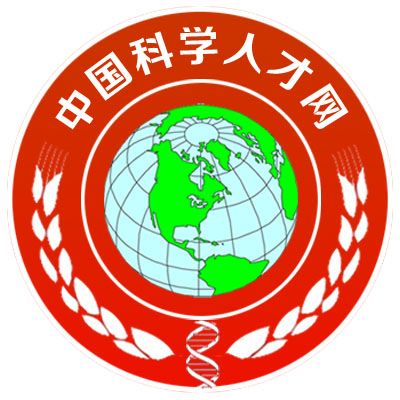英国弗朗西斯.克里克研究所2024年招聘博士后(中性粒细胞在炎症性疾病中的效应机制)
弗朗西斯·克里克研究所(Francis Crick Institute):2010年诺贝尔奖得主、遗传学家保罗·纳斯提议将英国伦敦两家最大的生物医学研究中心(英国国家医学研究所,英国癌症研究中心)合并在一起,建立一个巨型实验室。
2015年11月实验室将竣工,2021年,这家耗费6.5亿英镑(约63亿人民币)、占地9.3万平方米的研究所将全功率运行,将有1600位科学家和工作人员在这里工作,它将成为欧洲最大的单一生物医学实验室。
Postdoctoral Fellow – V Papayannopoulos lab
Reporting to: Venizelos Papayannopoulos, Principal Group Leader
Contact term: This is a full-time, fixed term (4-year) position on Crick terms and conditions of employment.
Closing date and time: The position will remain open until suitable candidates are found.
The Research Group
Our lab studies how neutrophils tune their effector mechanisms such as neutrophil extracellular traps (NETs) to clear invading pathogens. We dissect the mechanisms that regulate these effector strategies and investigate how their dysregulation promotes inflammatory diseases such as atherosclerosis and colitis.
We have identified a basic mechanism of NET formation that is implicated in anti-fungal defence but also promotes atherosclerosis. We have also uncovered pathways that allow neutrophils to distinguish between different pathogens such as bacteria and fungi and tune NETosis and inflammation for efficient pathogen clearance. We also showed that NETs are highly proinflammatory through their histones and regardless of their origin extracellular histones lead to a break-down of innate and adaptive immunity during sepsis. Ongoing projects in the lab range from areas of basic NET biology and regulation to the regulation of neutrophil heterogeneity and its impact on inflammatory disease through the cross-talk with other immune cells.
The Project
Over the years, we have developed a strong interest in the role of NETs in cardiovascular diseases. NET are key drivers of atherogenesis1, but the events that promote the pre-clinical stages of cardiovascular disease are still poorly understood.
Defects in NET degradation are associated with autoimmunity and hight rates of mortality during severe infection such as sepsis and COVID-19 pneumonia2. In addition, NET degradation deficiencies can manifest in healthy young individuals who later in life exhibit an increased risk for cardiovascular disease2.
The project will identify mechanisms that interfere with NET clearance and investigate their role in CVD development using mouse models and human samples. This ambitious project will involve significant biochemical work, complex cellular assays, mouse models of atherosclerosis and analysis of human samples. We are therefore seeking a highly motivated post doc fellow with expertise in the field of inflammation, biochemistry and mouse immunology and an established track record.
Post-doctoral fellows can also develop their own projects by pursuing questions stemming from ongoing work or towards completely new directions. Other areas we are currently investigating are mechanisms of neutrophils heterogeneity communication in anti-fungal immunity and disease.
Postdoctoral Training Fellows are expected to lead their own projects, contribute to other projects on a collaborative basis (both in the lab and with external collaborators) and participate in training PhD students. The ability to work in a team is essential.
References
1. A Warnatsch, M Ioannou, Q Wang, V Papayannopoulos. Neutrophil extracellular traps license macrophages for cytokine production in atherosclerosis. Science 349 (6245), 316-320 (2015).
2. IV Aramburu, D Hoving, SI Vernardis, MCF Tin, M Ioannou, MI Temkin, ... V Papayannopoulos. Functional proteomic profiling links deficient DNA clearance with increased mortality in individuals with severe COVID-19 pneumonia. Immunity 55 (12), 2436-2453. (2022).
Key experience and competencies
Excellent scientific written skills are necessary. The applicant should have already performed interesting and conceptually stimulating work that has resulted in a first author publication or in the process of being published.
This position is funded by the laboratory’s Crick core funding, and the applicant will be encouraged to apply for fellowships.
The post holder should embody and demonstrate our core Crick values:
Bold; Open; Collegial
Essential
PhD in immunology, infection biology, biochemistry or cell biology or in the final stages of PhD submission
Good knowledge and experience in immunology and biochemistry.
Technical expertise in biochemical, cell biological and mouse work.
Track record of writing papers as evidenced by publications or submitted manuscripts in referred journals
Evidence of data presentation at scientific meetings
Experience with experimental design is absolutely essential
Ability to work independently and collaborate with others
Desirable
Experience in research with model biological system (mouse)
Experience in myeloid cell biology, cellular signalling pathways.
Experience in biochemistry and cellular biology
About Us
At the Crick, we conduct research at the forefront of biomedical research. We combine rigour with an open and collaborative culture, and are outward-looking, reflecting our status as a partnership of six organisations aiming to pool knowledge, ideas and resources.
We have a wide research portfolio with no divisions or departments, bringing biomedical researchers together with clinicians, physical scientists and applied scientists from our pharmaceutical partners.
We aim to attract the most talented researchers and support them to tackle innovative research questions. Our science technology platforms provide our researchers with access to state-of-the-art technology and expertise.
We provide an excellent learning environment with dedicated education programmes in public engagement with science, education and personal development, and a postdoc training programme that prepares scientists for leadership roles in science.
If you are interested in applying for this role, please apply via our website.
The closing date for applications is [date] at 23:59
All offers of employment are subject to successful security screening and continuous eligibility to work in the United Kingdom.
If you require a visa to work in the UK we will help support your application should you be successful
Equality, Diversity & Inclusion
We welcome applications from all backgrounds. We are committed to providing equal employment opportunities, regardless of ethnicity, nationality, gender, sexual orientation, gender identity, religion, pregnancy, age, disability, or civil partnership, marital or family status. We particularly welcome applications from people who are Minority Ethnic as they are currently underrepresented in the Crick at this level.
Diversity is essential to excellence in scientific endeavour. It increases breadth and perspective, leading to more innovation and creativity. We want the Crick to be a place where everyone feels valued and where diversity is celebrated and seen as part of the foundation for our Institute’s success.
The Crick is committed to creating equality of opportunity and promoting diversity and inclusivity. We all share in the responsibility to actively promote dignity, respect, inclusivity and equal treatment and it is our aim to ensure that these principles are reflected and implemented in all strategies, policies and practices.
Read more on our website: https://www.crick.ac.uk/careers-and-study/life-at-the-crick/equality-diversity-and-inclusion
Find out what benefits the Crick has to offer:
For more information on our great pay and benefits package please click here: https://www.crick.ac.uk/careers-and-study/life-at-the-crick/pay-and-benefits
Equality, Diversity & Inclusion:
We welcome applications from all backgrounds. We are committed to providing equal employment opportunities, regardless of ethnicity, nationality, gender, sexual orientation, gender identity, religion, pregnancy, age, disability, or civil partnership, marital or family status. We particularly welcome applications from people who are Minority Ethnic as they are currently underrepresented in the Crick at this level.
Diversity is essential to excellence in scientific endeavour. It increases breadth and perspective, leading to more innovation and creativity. We want the Crick to be a place where everyone feels valued and where diversity is celebrated and seen as part of the foundation for our Institute’s success.
The Crick is committed to creating equality of opportunity and promoting diversity and inclusivity. We all share in the responsibility to actively promote dignity, respect, inclusivity and equal treatment and it is our aim to ensure that these principles are reflected and implemented in all strategies, policies and practices.
Read more on our website: https://www.crick.ac.uk/careers-and-study/life-at-the-crick/equality-diversity-and-inclusion








